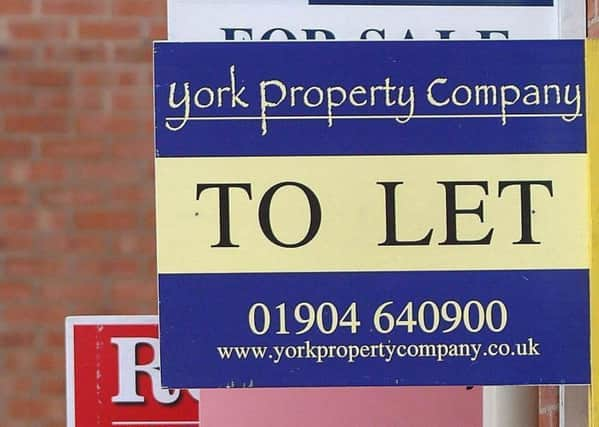Budget property reforms bring joy and misery


Chancellor George Osborne got a mixed reaction when he announced various property and housing reforms in this week’s summer Budget. Here is the low down on the winners and losers:
Inheritance Tax: There were cheers all round when Mr Osborne confirmed plans to reform inheritance tax. Rising house prices mean that more families than ever before are caught in this trap.
Advertisement
Hide AdAdvertisement
Hide AdAt present, 40 per cent tax is payable on estates valued in excess of the tax-free allowance of £325,000 per person. Married couples and civil partners can pass this allowance to each other.
From April 2017 parents will each be offered a further £175,000 “family home allowance” to enable them to pass property on to direct descendants, such as children or grandchildren, tax-free.
This will be added to the existing £325,000 inheritance tax threshold, bringing the total transferable tax-free allowance from both parents in a married couple or civil partnership to £1m. Downsizers will be eligible for an “inheritance tax credit” so if they sell an expensive property, they will still qualify for the new threshold on their death, providing the bulk of the estate is left to direct descendants. This is a bid to encourage pensioners to free up larger properties.
Help to Buy ISA: Another winner. This was announced at the last Budget but there is now a definitive launch date of December 1, 2015. It is a cash giveaway that provides those saving for their first home with a maximum £3,000 top up on £12,000 of savings. Those who qualify will be able to deposit £200 per month into their Help to Buy: ISA and can open their account with an additional one off deposit of £1000, which encourages them to start saving now in preparation.
Advertisement
Hide AdAdvertisement
Hide AdMortgage Interest Relief: There were plenty of boos and hisses at this bombshell. Landlords feared it would happen, though later rather than sooner. Mr Osborne believes that the current tax system supports landlords over and above ordinary homeowners as they can deduct mortgage interest costs from the tax they pay on rental income.
Mortgage Interest Relief was withdrawn from homeowners 15 years ago. The latest reform will limit the amount that landlords can claim to the basic rate of tax, which is currently 20 per cent. The change will be introduced over four years from April 2017. Currently, property investors can claim tax relief on their monthly interest repayments at the top level of tax they pay, meaning the wealthiest can claim as much as 45 per cent. To add to landlords’ woes, the government will also reform tax deductable costs. Owners of furnished lets can deduct ten per cent of their rent to account for wear and tear, irrespective of their expenditure. From April 2016, this allowance will be replaced with a new system that enables all landlords of residential property to only deduct costs they actually incur.
Guy Ackernley, Head of Residential at JLL in Leeds, says: “The loss of some buy-to-let interest relief will curb the expansion of investment in the sector, although this will be seen as a boost for first-time buyers”. The National Landlords Association predicts a rise in rents.
Rent a Room: From April 2016, the government will increase the Rent-a-Room or lodger relief from £4,250 to £7,500. This will allow individuals to rent a room in their main residence tax free on income up to £7,500.
Advertisement
Hide AdAdvertisement
Hide AdSocial Housing: Housing associations are unhappy with the news that rents in the social housing sector will be reduced by one per cent a year for the next four years. Some tenants who want to exercise the right to buy are thrilled they will get their property at a discount of up to 70 per cent. However, tenants with household incomes of £40,000 and above in London and £30,000 and above in the rest of England, will be required to “Pay to Stay”, by paying a market or near market rent.
Predictions: The Office for Budget Responsibility forecasts house prices to grow by 5.7 per cent in 2015, followed by 4.1 per cent in 2016, before rising to 5.6 per cent in 2020. Property transactions are forecast to fall by 1.7 per cent this year before growth picks-up, peaking at 5.5 per cent in 2018.